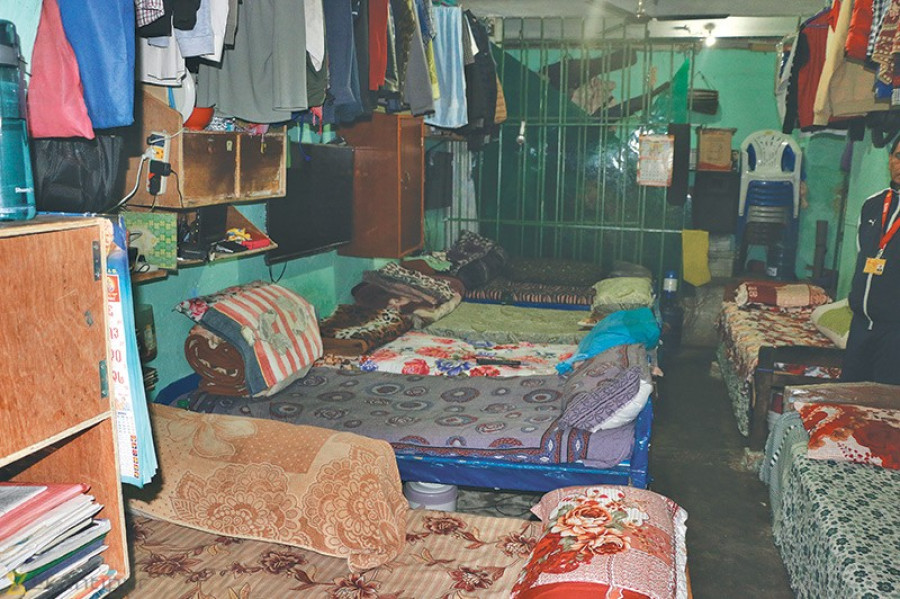National
Prisoners in Nepal are living under ‘inhumane conditions’ says Office of the Attorney General
The Office of the Attorney General has painted a bleak picture of police cells and prisons across the country, emphasising the urgent need to improve the living conditions to ensure “human dignity” of those living there.
The Office of the Attorney General has painted a bleak picture of police cells and prisons across the country, emphasising the urgent need to improve the living conditions to ensure “human dignity” of those living there.
The findings, made public on Tuesday, which are part of the Office of the Attorney General’s ongoing monitoring across the country reveal overcrowding in prisons and the lack of basic care of prisoners. The auditor general’s initial assessment is based on their findings from prisons, police cells and juvenile detention centres in 24 districts.
An in-depth report about the situation of prisons will be released later this year.
According to the initial findings of the OAG’s monitoring team, some of the most dire conditions for prisoners were in several prisons in the Tarai districts, like Banke and Parsa. Inmates there were found living under “inhumane conditions” struggling for clean water and food inside crammed, dilapidated structures.
“Prisoners in these districts are struggling for decent living space and timely health care,” said Sanjeeb Regmi, spokesperson for the Office of the Attorney General. “The prisons won’t have humane conditions if they are housing prisoners double or triple their capacity.”
This isn’t the first time the bleak conditions of prisons and detention centres have been revealed. The OAG, National Human Rights Committee and human rights organisations like INSEC have repeatedly highlighted similar concerns of overcrowding and inhumane living conditions of prisoners.
In the last couple of months, there have been several reports about prisoners being mistreated in different districts.
Last March, prisoners in Jumla protested against the imperious prison in-charge and the lack of proper health care inside the facility.
“It is our job to probe the government to ensure that prisoners are treated humanely and that their human dignity is respected,” said Regmi.
The Office of the Attorney General has repeatedly sent recommendations to the government for timely intervention in the living conditions of prisoners, but they have been slow to respond.
The government is currently building three large prisons with better physical infrastructure in Nuwakot, Banke and Dhangadi, but has not yet made efforts to deal with other issues like mistreatment and abuse in prisons.
Hari Prasad Mainali, director of the Department of Prison Management, said that expanding and improving the physical infrastructure was a priority, but dismissed media reports about prisoners being mistreated.
“Not everything that you hear is true about the treatment of prisoners because we have been providing them with proper health care,” said Mainail.




 18.12°C Kathmandu
18.12°C Kathmandu













